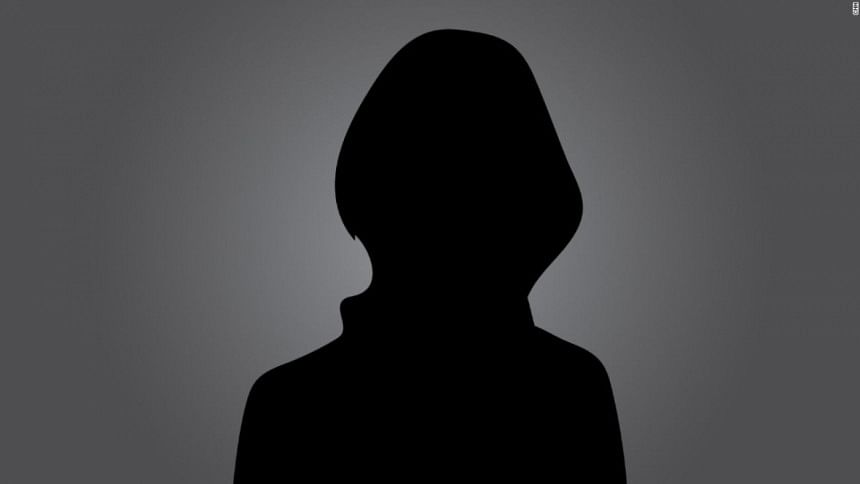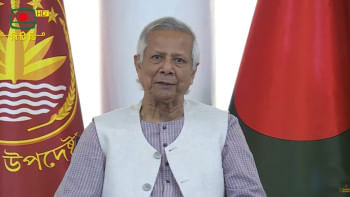What does the law say about disclosing identity of victims?

The Feni madrasa student murder case has left us shaken to the core. People from all over the country are demanding that the culprits be brought to justice at the earliest.
While all this was happening, the negligence of an officer-in-charge of the Sonagazi Police Station came to light. On March 27, 2019, upon hearing a complaint of sexual assault, the OC cross-examined Nusrat in his office. While asking her indecent questions, he filmed her statement on his phone without her consent. To make things worse, he uploaded the video online, probably with the hope that it would go viral, at a time when Nusrat's much-publicised case had everybody talking.
A Supreme Court lawyer sued the OC under the Digital Security Act for recording the victim's statement without her consent and spreading it on social media. This incident raises a very important question: is the privacy of victims of crime being adequately protected in the country? Does disclosing the identity of victims of sexual harassment or of any other offence such as rape constitute criminal liability?
The Penal Code of 1860 defines the offence of defamation in Section 499. It states that whoever by words or visible representation publishes anything intending to harm the reputation of another person, will be considered as committing an act of defamation. The highest punishment for defaming a person is imprisonment of two years. In our case, the victim was asked indecent questions regarding her complaint. A video of hers was publicised without her consent. According to Section 509 of the same Act, it is an offence to insult the modesty of a woman by invading her privacy, and anyone doing so can face imprisonment of one year or fines or both.
Section 26 of the Digital Security Act states: "If any person without any legal authority collects, sells, takes possession, supplies or uses any person's identity information, then, that activity of that person will be an offence under the Act." It imposes imprisonment not exceeding five years and a fine of Tk 5 lakh or both. Section 29 of the Act states: "If a person commits an offence of publication or broadcasts defamatory information as described in Section 499 of the Penal Code (Act XLV of 1860) in any website or in any other electronic format, then he will be sentenced to a term of imprisonment not exceeding 3 years or fine not exceeding Tk 5 lac or both." Both the sections have separate punishments for second-time offenders.
Section 14 of the Women and Children Repression Prevention Act 2000 imposes a penalty of two years' imprisonment and Tk 1 lakh or both upon anyone who shares news reports disclosing the identity of rape victims. Such news reports may include pictures of the victim during the attack or pictures taken after the incident. Section 20(6) of the same Act provides for in-camera trial for the protection of privacy of rape victims and witnesses to the offences.
Section 25 of the Prevention of Human Trafficking Act 2012 also mentions in-camera trial for the interest of safeguarding the identity of child and women victims. Section 37 of the Prevention of Human Trafficking Act 2012 talks about protection of victims and witnesses in criminal trials. It states: "Nobody shall publish or broadcast the name, photograph or any information or identity of a victim of human trafficking or of any member of his family without the permission of the Tribunal." Anyone in breach of this provision shall be liable to imprisonment for a term not exceeding six months or with a fine not exceeding Tk 1 lakh.
Section 11(2)(b) of the Press Council Act 1974 states that the press council must create a code of conduct for newspapers and news agencies and journalists in accordance with high professional standards. This would mean that the press is under strict obligations of maintaining standards and not committing any unethical activity such as disclosing the identity of a victim of a crime in their reports.
The Evidence Act of 1872 states that the court may disallow any questions to witnesses which it finds indecent. It is mentioned in Section 152 that the court shall forbid any insulting or offensive questions to witnesses.
The Children Act 2013 empowers the court to pass necessary orders for better protection of child victims. It can take necessary steps to maintain the highest secrecy of information so that the child's identity may not be disclosed. Section 54(3)(a) states that the secrecy of the child's identity must be maintained and no information regarding the physical features of the child may be disclosed. While taking witness statements, the child must be kept behind a veil. This section also allows for an in-camera trial.
According to Section 228-A of the Indian Penal Code, anyone who publishes the name of a rape victim is liable to be punished with imprisonment for a term which may extend to two years and shall also be liable to fines. The Supreme Court of India has also barred the disclosure of the identity of rape victims, even after death.
Even the Bangladeshi Law Commission in its reports has criminalised the publication of the identity of victims. But this unethical and illegal practice continues to take place. What is more surprising is that the law enforcers themselves fail to abide by these laws. They must remember that it is their duty to ensure protection of victims at any cost and the media should also help in these efforts. Publishing the identity of victims risks making victims vulnerable to threats and exposes them to further victimisation. Active participation of people—both those who may know the victims personally and even those who don't—is needed to protect victims' identities and, above all, the law enforcement agencies themselves must not forget that they have an obligation to protect victims' identities.
Aiman R Khan is an advocate at Dhaka Judge Court. He can be reached at [email protected]. Visit his website: www.advarklaw.com.





Comments